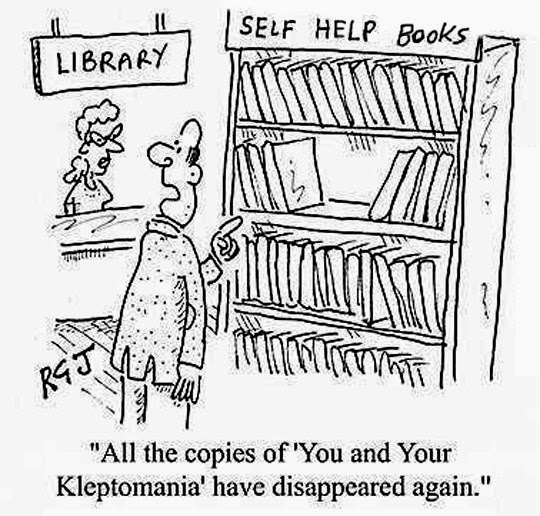Portrait of Pinoy Politicians as Kleptomaniacs
by Randy Dellosa
The Senate investigation of the pork barrel scam has all the makings of a hit “teleserye” or reality TV show. It has elements of drama, suspense, comedy and even an alleged May-December romance. The twists and turns in the storyline result from all the mind games, blame games, delaying tactics, and diversionary schemes that throw the investigation off track. The plot of course revolves around the theme of plunder, which can also be referred to as “political kleptomania.”
Kleptomania comes from the combination of two Greek words for “thief” and “madness.” Kleptomania is characterized by the inability of a person to resist the temptation or urge to steal. It is important though to differentiate psychiatric kleptomania from political kleptomania. Psychiatric kleptomaniacs steal objects of little value for no other purpose than the heck of it. On the other hand, political kleptomaniacs refer to those government officials and politicians who illegally acquire vast amounts of wealth for personal gain. Political kleptomaniacs are also called “kleptocrats.”
What are the psychological factors that transform some politicians into kleptomaniacs?
- Measure of success. For some politicians, the fatness of their bank accounts determines how high they’ve made it up the socio-eco-political ladder. These people acquire excessive wealth because for them, wealth equals success, power, and prestige.
- Poverty mentality. Some politicians who come from humble backgrounds have risen up the ranks yet continue to harbor a self-perception of being poor. They become compulsive hoarders of material wealth as if they were in a constant and insatiable state of deprivation.
- Sharing the loot. Some politicians believe that it is acceptable to steal as long as some of the loot is used for charitable or religious projects. For them, sharing a little portion of the loot has the effect of lessening their guilt.
- Copycat thievery. Many politicians pick up the shady habits of their corrupt predecessors and colleagues. In this sense, corruption is like an inheritable illness or contagious disease.
- Self-reward for stress. Some politicians feel unfairly compensated for all the effort they pour into their work. Since they believe that the government is not paying them enough, they exaggeratedly augment their own salary by hook or by crook.
- Banking on Pinoy compassion. Corrupt politicians may not be too fearful of being caught for their crimes because Pinoys have shown a track record of easily forgiving past political leaders who have committed plunder.
- Supporting their networks of patronage. Some politicians engage in massive thievery in order to pay off, reward, or give incentive to the people and institutions that back them up.
- Preparation for comfortable retirement. Some politicians amass wealth because they want to sustain an affluent lifestyle after their retirement.
- Potential of
- power to corrupt. A person in high office is always vulnerable to temptation. The historian John Acton put it well in stating that “Power tends to corrupt and absolute power corrupts absolutely.”
- Narcissistic personality. Some politicians are narcissists who have an inflated view of themselves. Considering themselves to be superior and special beings, they feel that they are above the law and feel entitled to the use public funds as if it was theirs.
- Criminal-mindedness. People with criminal tendencies are sociopaths who often con people for personal profit. Sociopaths have a calloused conscience and do not display any remorse for their offenses.
Kleptomania is commonly treated through aversive conditioning. Aversive conditioning is nothing more than the quick application of stern but non-abusive disciplinary action immediately after the stealing is committed. In the olden days, electric shocks and other forms of physical torture were inflicted as inhumane punishments for kleptomania.
Politicians have their high office as a venue either to showcase their virtues or to cultivate their vices. For politicians who choose the latter, they need to be justly penalized and be taught these 3 basic lessons in life:
- that corruption is not a privilege of politicians,
- that in the long run, crime does not pay, and
- that no one should ever consider himself or herself to be above the law.








No comments:
Post a Comment